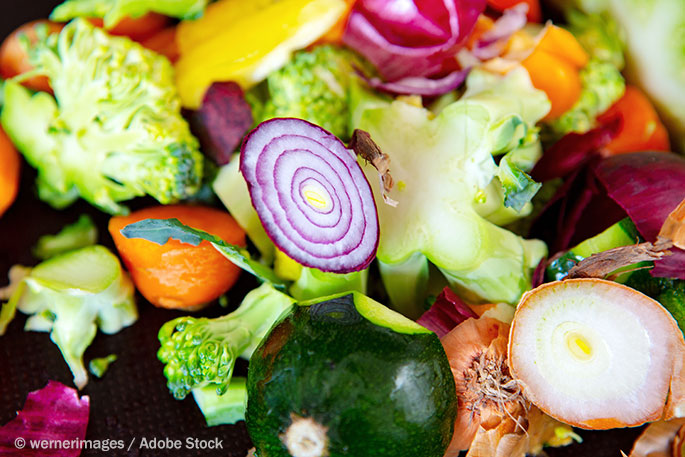
Imagine tossing your potato peels, chicken bones, and dead flowers into a recycling bin and placing it out at the curb for collection, the same way many people now do with cans and bottles. Is this a practical innovation in recycling or is it just disgusting? In recent years, New York City has begun to recycle organic waste, and the feedback from residents is mixed.
Michael Bloomberg first proposed the recycling of food scraps in the city in 2013. Currently, New Yorkers can place their organic waste in one of the new brown recycling bins and leave it outside their home to be picked up. The waste is not only made into compost but used to generate energy, such as gas and electricity.
While it is common to recycle yard waste, food waste is still a new idea that New Yorkers have trouble getting over. The Saratogian reports that only 10.6 percent of available food scraps are being recycled. New York residents have expressed concerns over attracting rodents with strong smells such as spoiled meat and cheese rinds.
Of course, the program may not work if enough people don’t participate in making it cost effective. The city assures residents that the new bins stay tightly closed to seal out odors. New York residents receive a starter kit that includes a small container for the kitchen. Sanitation workers have even tried putting thank you notes on bins to encourage people.
Despite the issue in New York, many other municipalities have food scrap recycling, officially known as organics collection programs. In Minneapolis, the city expanded the pilot program to the entire city in July of 2016. Residents have expressed enthusiasm but like in New York participation has been slow and education is needed. For example, Minneapolis residents are allowed to toss food stained paper into the organics collection bin when many have been conditioned for years not to put it in the paper recycling. According to the StarTribune David Herberholz, the Minneapolis Director of Solid Waste, residents are hesitant because they are worried about doing it right.
Americans are on the right track. The concept of residents placing household organic waste into a recycling bin and placing it out for municipal collection is becoming a reality in some cities. However, it may take education and time for attitudes to change and for the general public to accept it.




































































































































 Three Ways to Engage Teams and Clients to Maximize Your Recycling Program Engagement
Three Ways to Engage Teams and Clients to Maximize Your Recycling Program Engagement  How to Integrate Accessibility Into Your Sustainability Planning
How to Integrate Accessibility Into Your Sustainability Planning  Why Park Benches Can Promote Workplace Well-Being
Why Park Benches Can Promote Workplace Well-Being 
